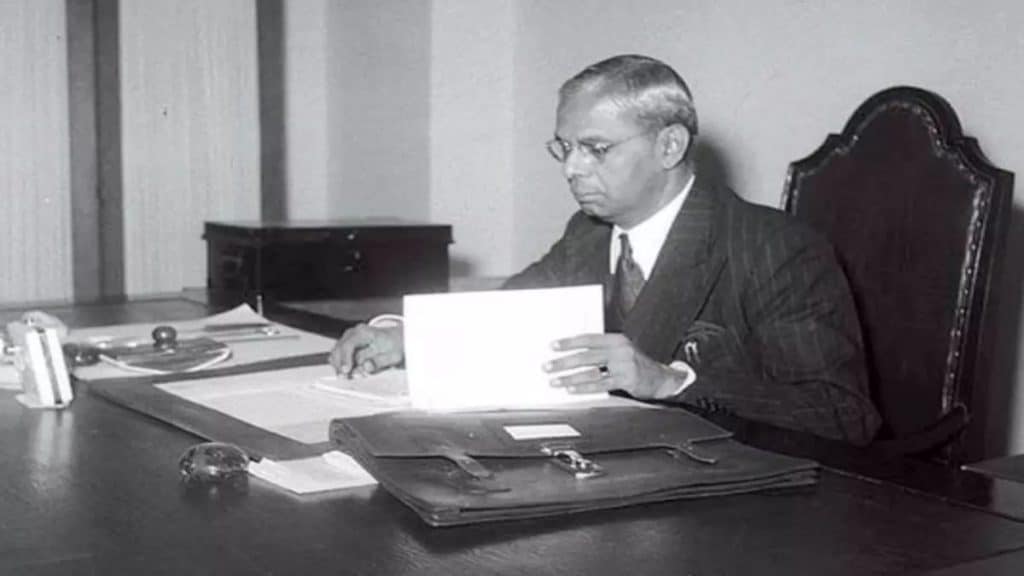India awaits with bated breath for Finance Minister Nirmala Sitharaman to present the country’s Budget. After months of toiling and great secrecy, the Budget will be made public on February 1, detailing the country’s debt and expenditures.
In fact, much ado is made about how secretive the entire Budget-making process is — some officials at the finance ministry are barred from meeting people in the outside world, including their family members.
But have you ever thought why such secrecy? It all dates back to when the Budget, believe it or not, was leaked — not once, but twice.
We get you all the details.
India had just attained independence from the British in August 1947 and Prime Minister Jawaharlal Nehru had tasked
Sir RK Shanmukham Chetty to present the budget then. On November 26, 1947, he was all ready to present independent India with its first Budget for a seven-and-a half month-period from August 15, 1947 to March 31, 1948.
But before Chetty could present his Budget speech at 5 pm — this was because politicians and officials wanted their counterparts in Britain to follow the details comfortably — it had been leaked.
But how? The leak occurred as UK Chancellor of the Exchequer Hugh Dalton told a journalist about the changes in taxes proposed in the Budget. As per a report by The Guardian, as Dalton was on his way to the Commons chamber, he met with the Daily Star’s John Carvel and said, “No more on tobacco; a penny on beer; something on dogs and pools but not on horses; increase in purchase tax, but only on articles now taxable; profits tax doubled.”
Carvel’s story was on the streets in approximately 20 minutes, causing a huge furore. Left with no alternative, Dalton apologised and then resigned from his position.
But the 1947 incident is a lone one when Budget details have been revealed to the public before time. There’s the infamous case that took place in 1950.
Unlike today where the printing of the Budget happens in the basement of the Secretariat Building in Delhi’s North Block, earlier printing of Budget papers used to take place at the
Rashtrapati Bhavan, the official residence of the President of India. The budget used to get printed at the same press and confidentiality was never breached.
However, in January 1950 when John Matthai was the finance minister, pages from the Budget document were leaked while at the press. Matthai, the second finance minister, of the country, then resigned after being accused of serving the interests of powerful people, as per a News18 report.
Following this leak, the printing of the Budget was shifted out of Rashtrapati Bhavan and moved to a government press on Minto Road. It was only in 1980 that the North Block’s basement became the spot where Budget papers are printed.
Today, keeping the Budget confidential is no simple task. A lot is done to ensure that it is kept a
secret until the papers arrive at Parliament and the finance minister of the country reads out his/her budget speech.
In fact, weeks before the announcement of the budget, the finance ministry office goes into quarantine. It is out of bounds for visitors and media until the presentation. Fifteen days prior to the Budget presentation, officials from the Central Industrial Security Force and Intelligence Bureau (IB) patrol the corridors of the finance ministry. CISF personnel are stationed outside key offices, including those of the finance minister, finance secretary, and other top officials, ensuring no unauthorised access.
Those involved in the making of the budget also have their phones tracked by an intelligence team. During this time, the people involved in the making of the budget are also placed under quarantine. They are not allowed to leave or even meet their families. In case of an emergency, the families of quarantined officials can leave a message on a number given to them. However, they cannot speak with them directly.
Only the finance minister can visit the officials.
When printing is about to begin, the finance minister’s budget speech is the most guarded. It is given to the printers only two days before the scheduled date — February 1.
Notably, the leaking of budget documents is punishable under the Official Secrets Act.
But many question if such confidentiality is needed. Some experts point out that major government announcements are not part of the budget anymore. Also, in many countries, the Budget is placed in the public domain months before it is presented.
But, perhaps we want to keep up with some old British traditions such as the secrecy around the Budget until the big day.
With inputs from agencies
Link to article –
